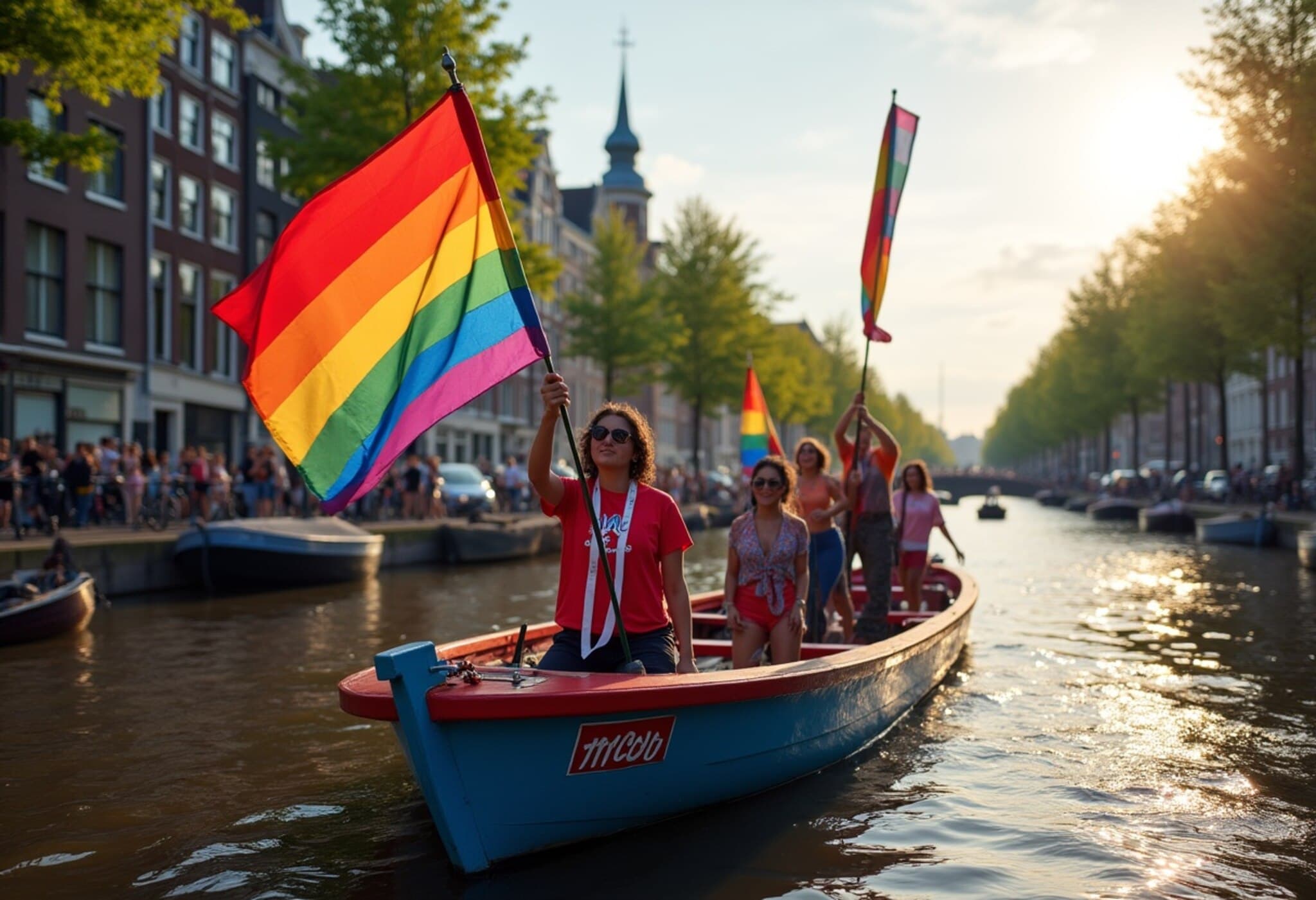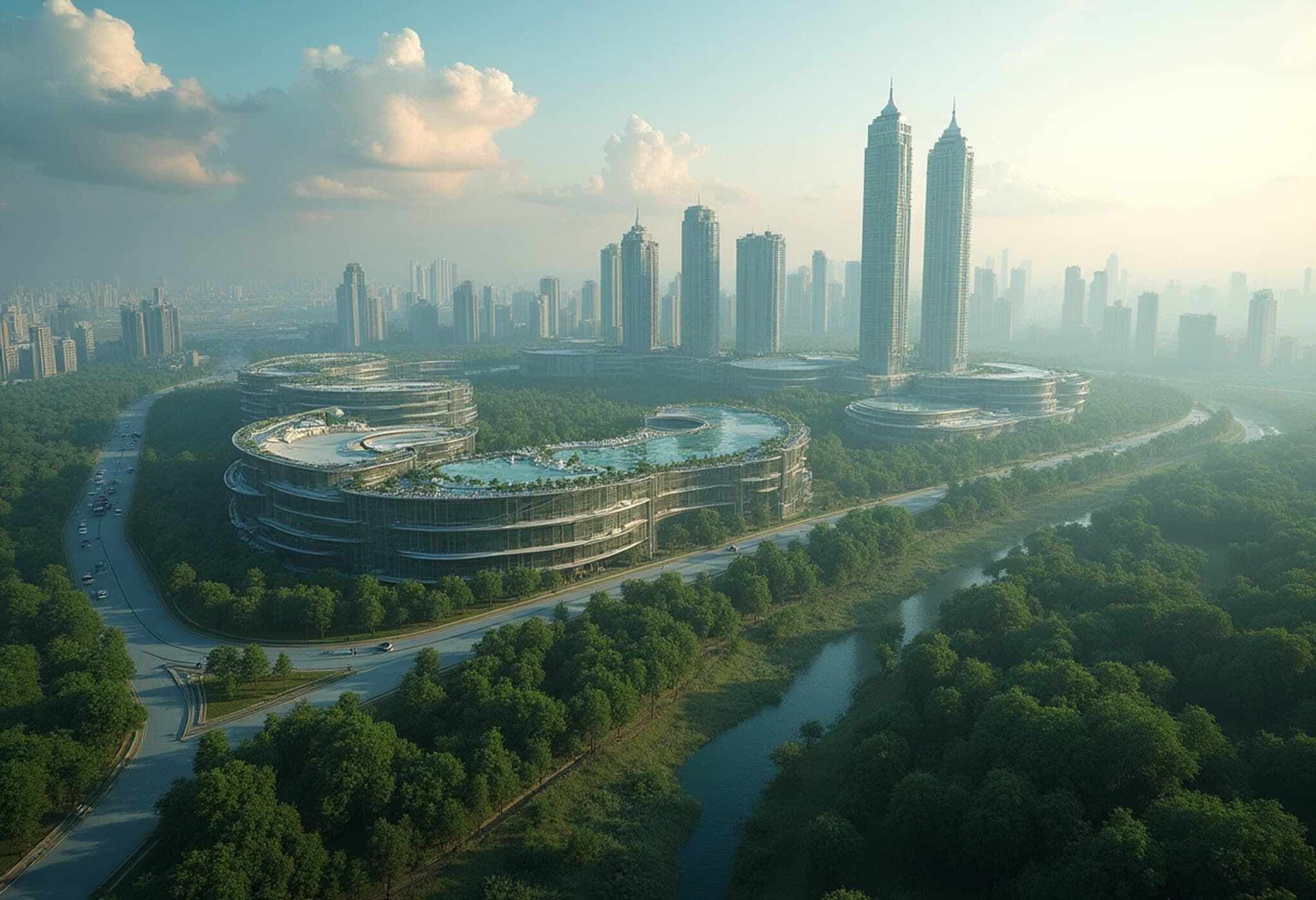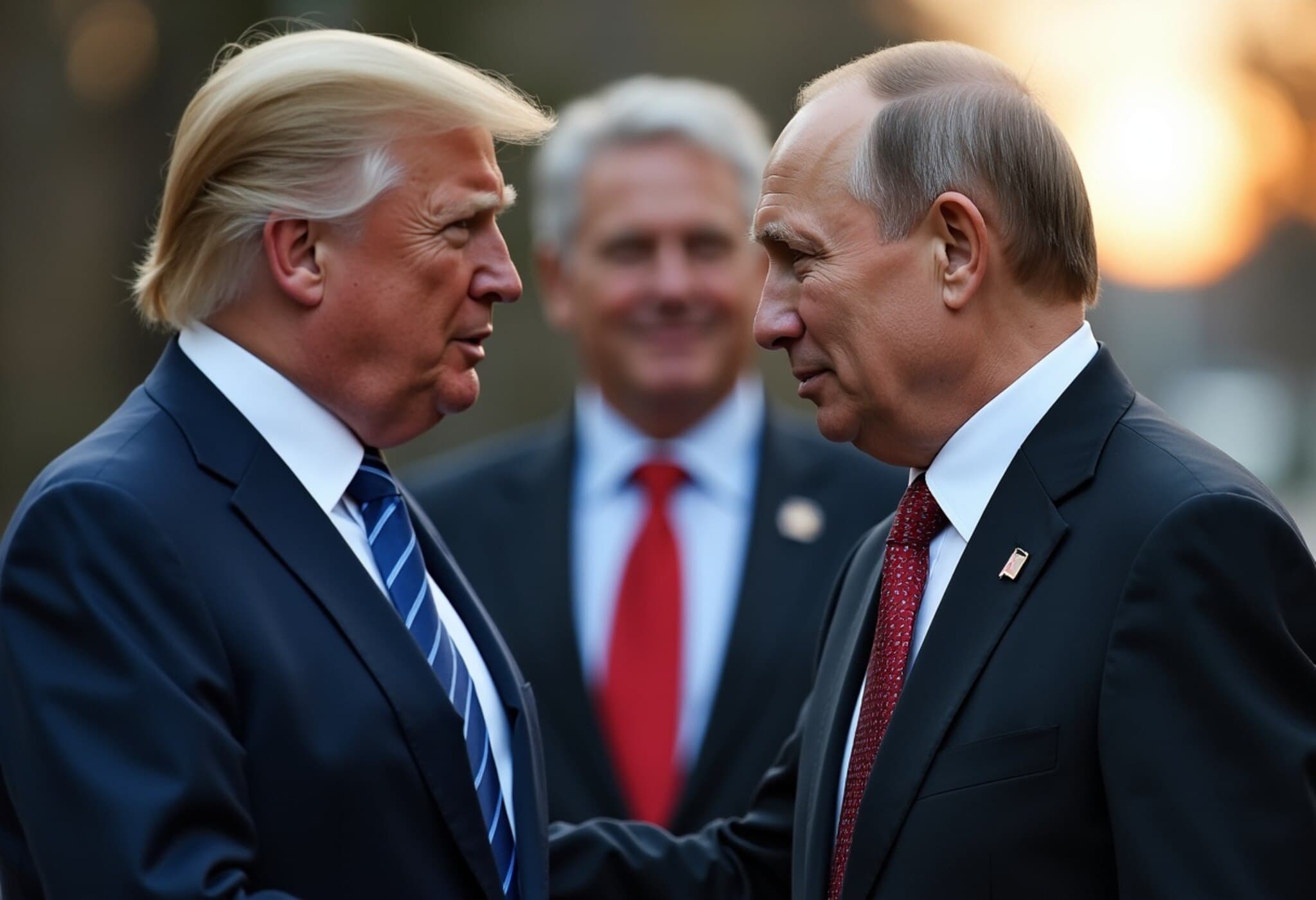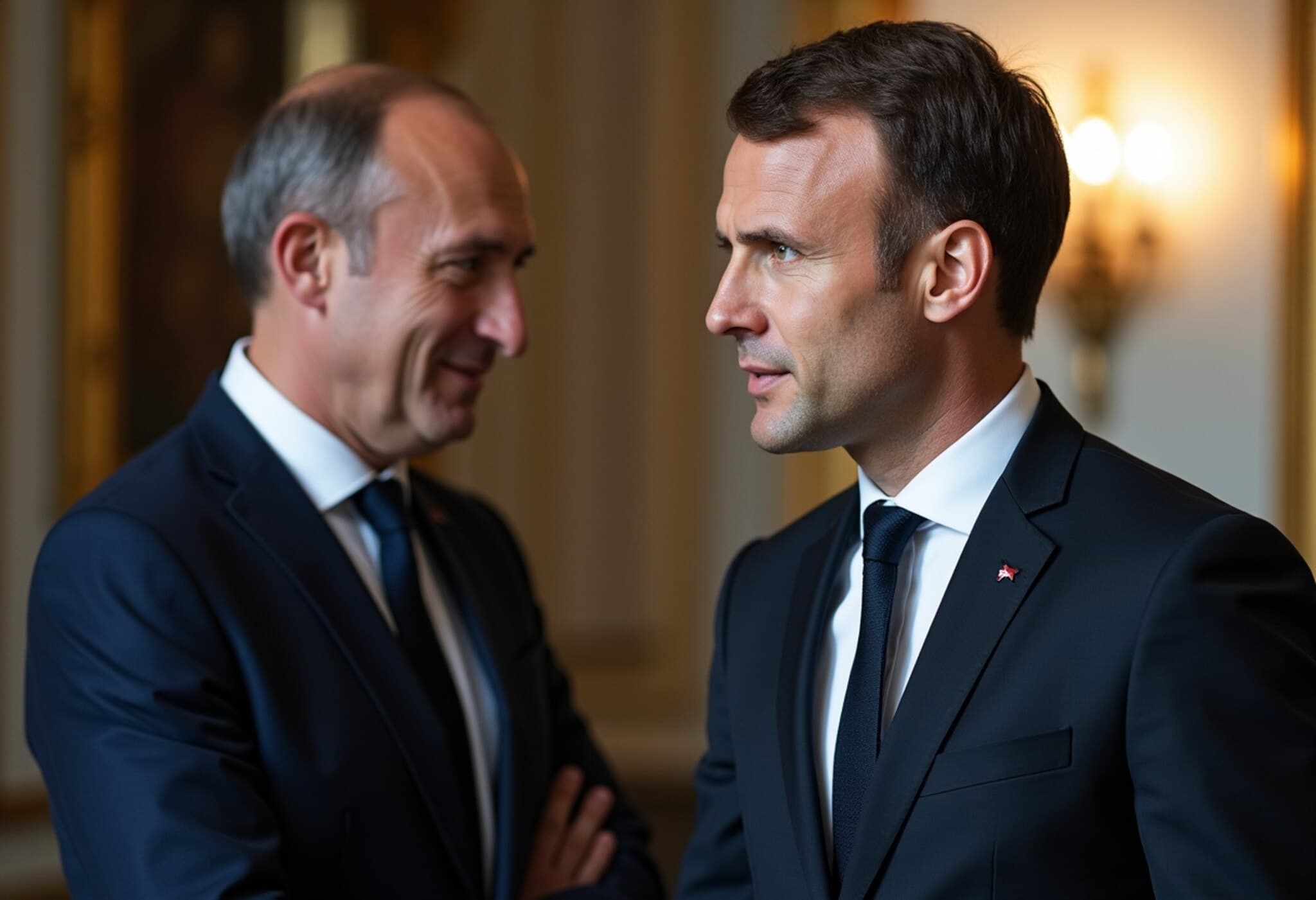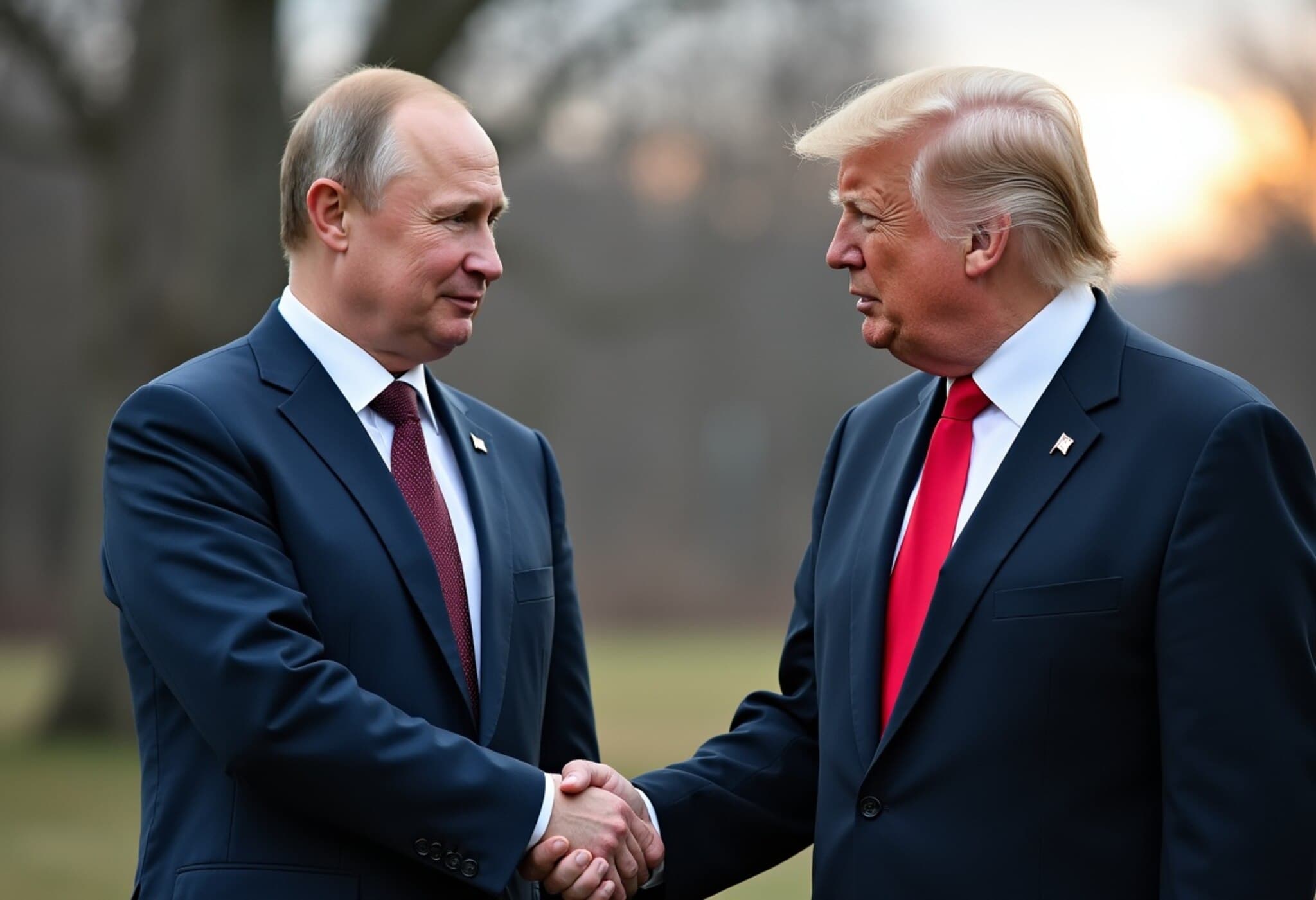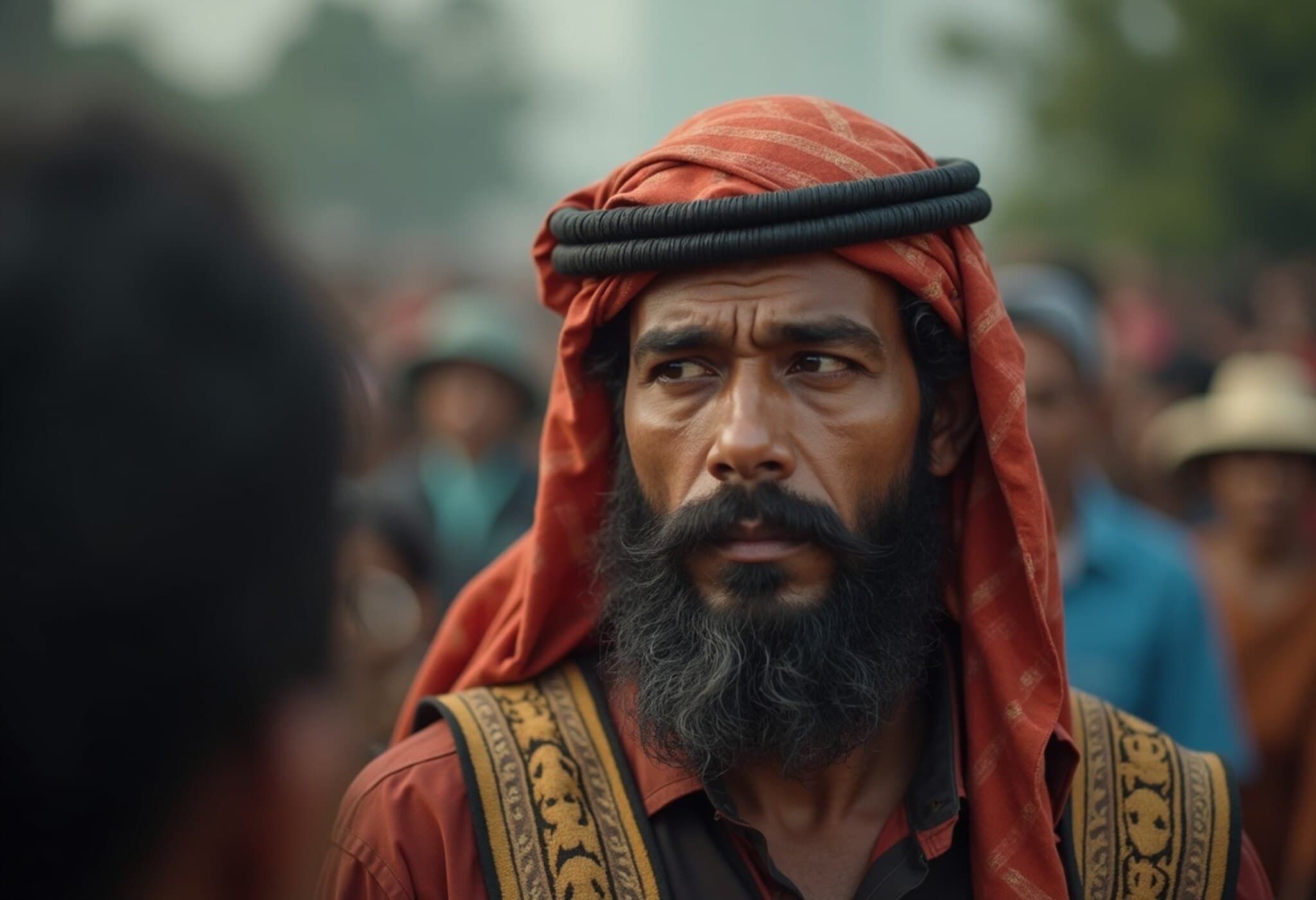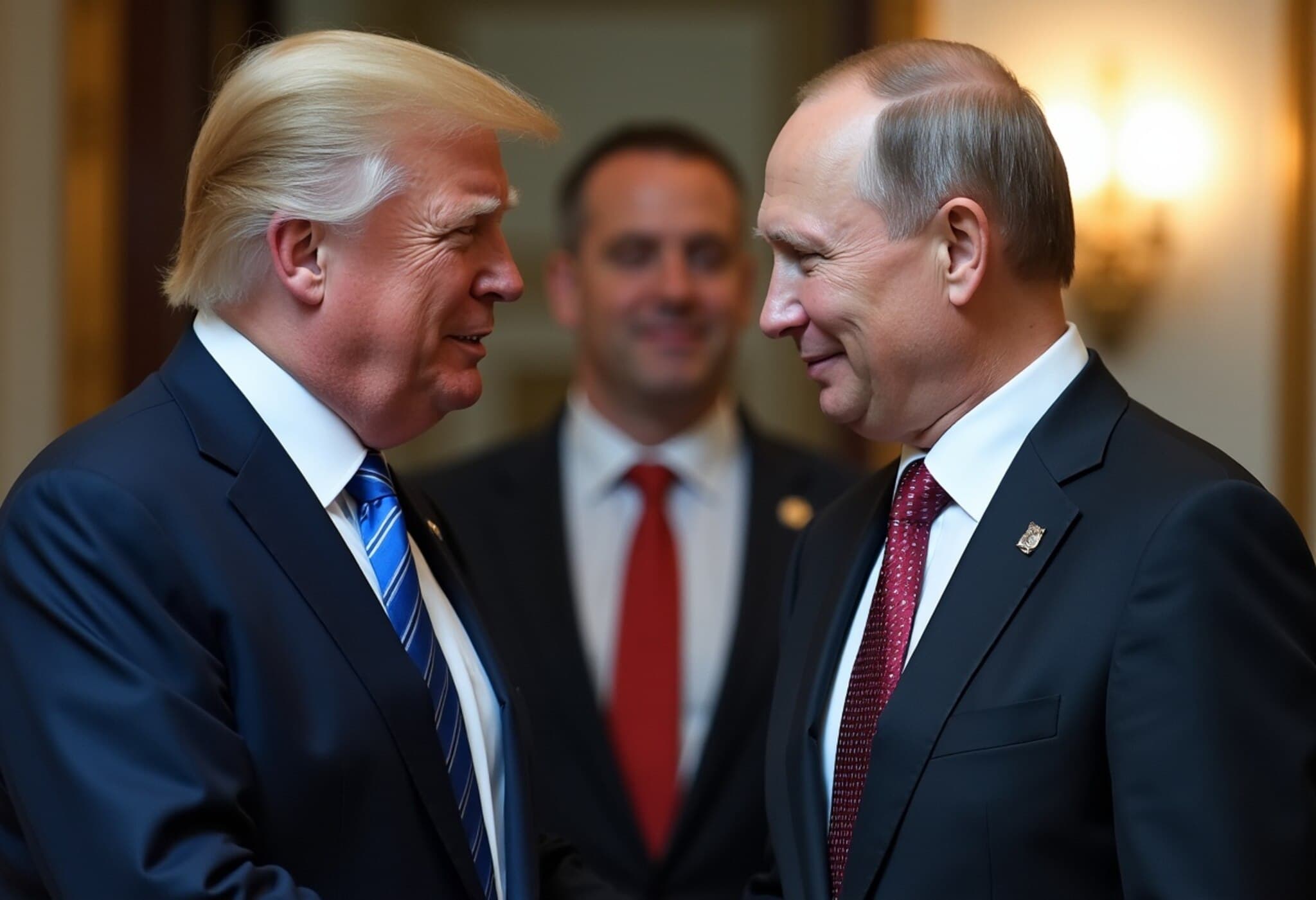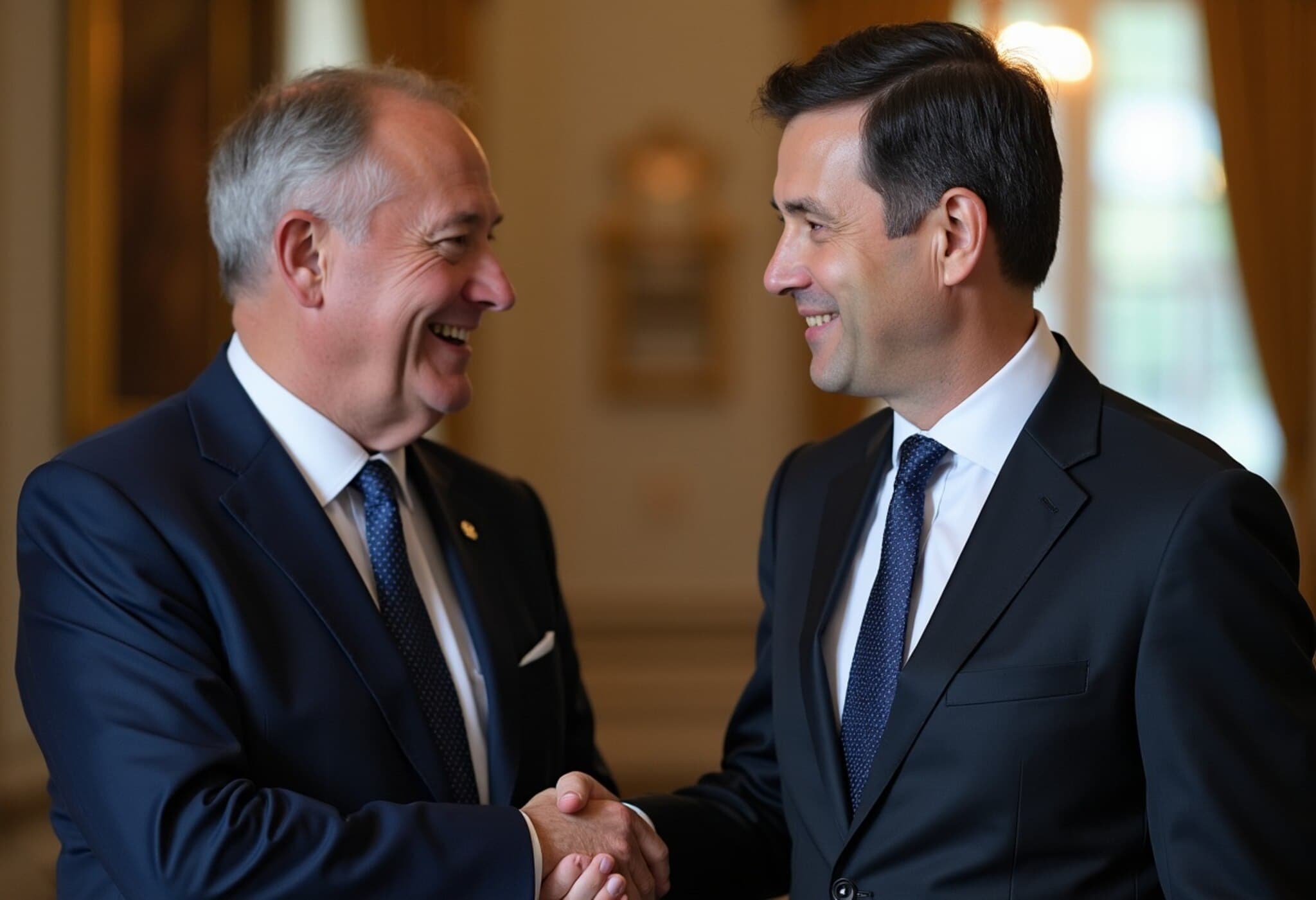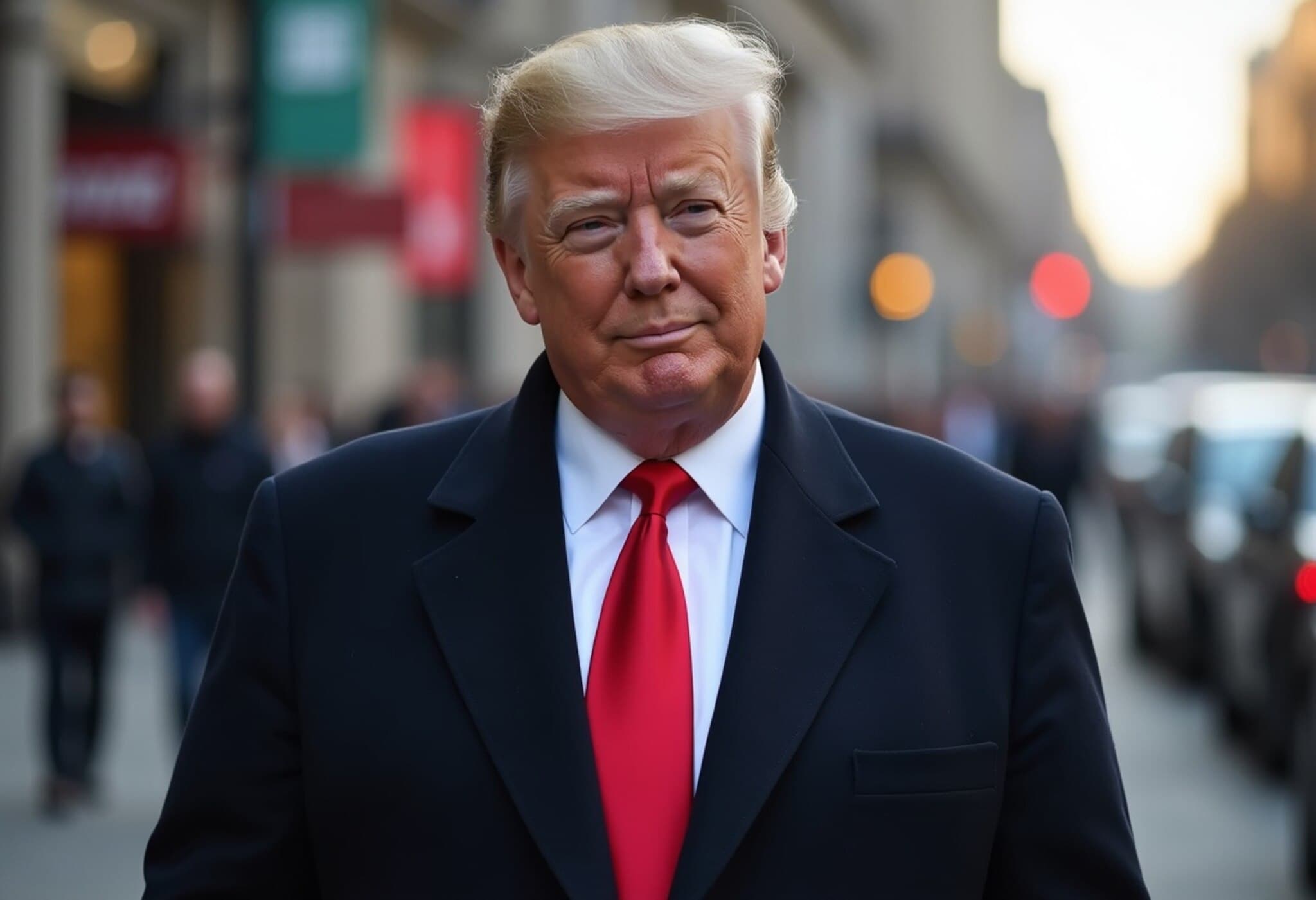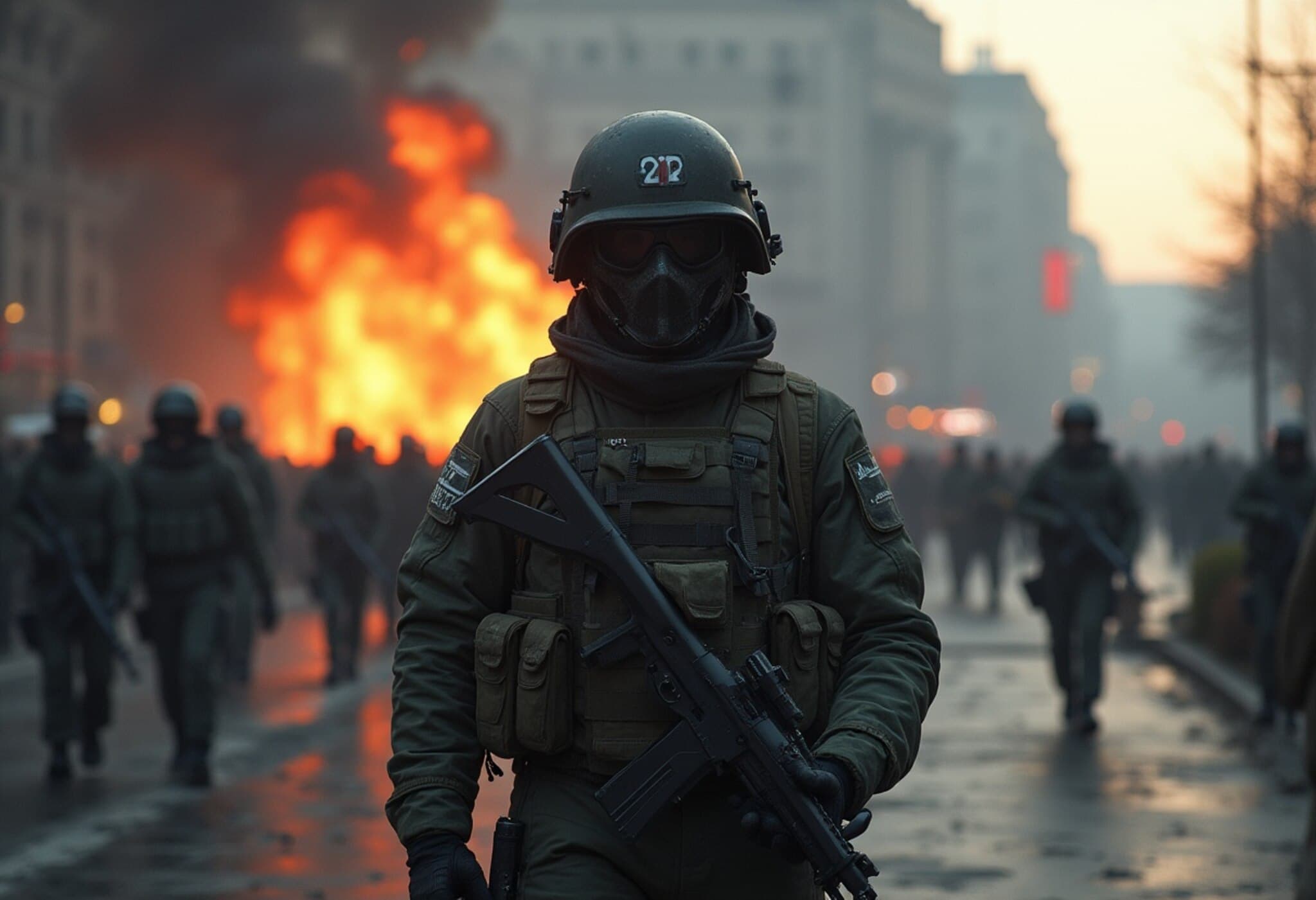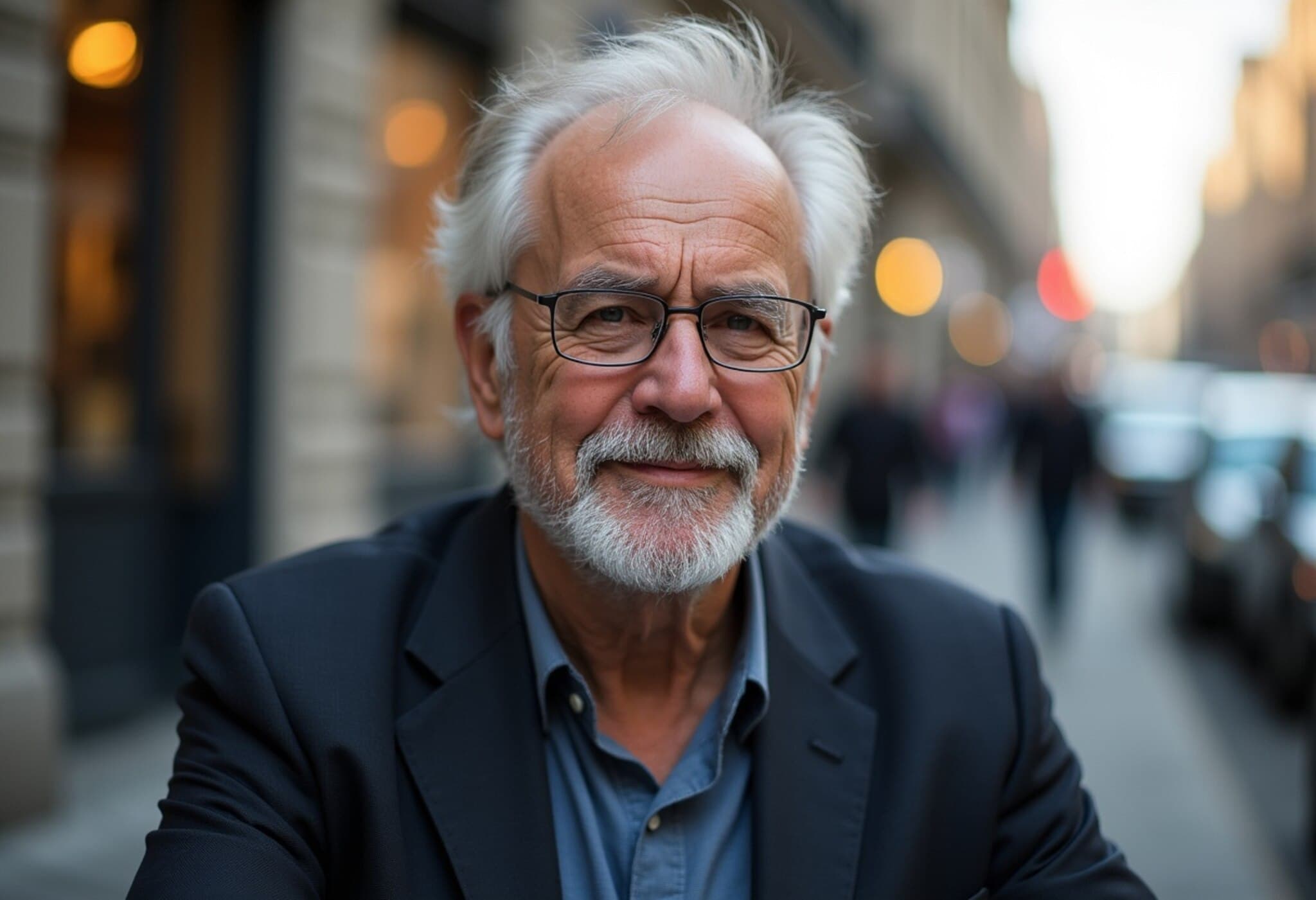A Colorful Display of Pride Amid Rising Global Challenges
On August 2, 2025, Amsterdam's iconic canals transformed into a vivid parade of unity and resistance, as approximately 80 brightly decorated boats sailed through the UNESCO World Heritage waterways to crown Pride Amsterdam week. Drawing tens of thousands of spectators, this annual celebration stood out not only for its exuberant festivity but also as a pointed counter-narrative to recent LGBTQ+ rights clampdowns across parts of Europe and beyond.
Celebration and Protest Intertwined
Although the Canal Parade itself is apolitical by design, many participants and onlookers seized the moment to voice concern over global setbacks in LGBTQ+ equality. Among them was Thehany Gilmore, a 43-year-old Dutch-Caribbean activist adorned in striking leather attire, who condemned Hungary's recent ban on Budapest’s Pride parade as a harsh suppression of fundamental freedoms.
"Banning Budapest's pride parade is a form of oppression," Gilmore stated with conviction. "Everyone deserves the right to express their identity openly and without fear."
Voices From Diverse Corners
The parade also echoed broader socio-political conflicts, with Palestinian flags visible among revelers, reflecting solidarity with global struggles for dignity and recognition. During the parade, Dutch police detained four activists who had jumped into the water to vandalize the Booking.com boat, protesting the company's business dealings in Israeli-occupied territories — a demonstration highlighting how Pride gatherings today can become platforms for intersecting human rights issues.
Critique of U.S. Policies at the Heart of Discussion
Across the Atlantic, U.S. policies on LGBTQ+ issues and international aid have sparked concern on the Canal Parade's floating stages. Several boats displayed banners and messages opposing former U.S. President Donald Trump’s administration’s rollback of transgender rights and reductions in HIV/AIDS funding for global programs — actions widely viewed by activists as setbacks for vulnerable communities worldwide.
One boat notably branded itself as the “Trump-Free Pride Boat,” showcasing signs declaring "Trans Rights Are Human Rights." Another featured symbolic mock graveyards and bold statements like "Trump’s Actions Kill. Love Saves Lives," underscoring the urgency many feel about the consequences of political leadership on public health and human rights.
Reflecting on Freedom, Love, and the Path Ahead
For many attendees like Michael Jacobs, a 40-year-old Rotterdam native, Amsterdam Pride is a moment to cherish hard-won freedoms and advocate for a more inclusive future.
"It's about expressing yourself and being thankful for the freedoms we hold in Europe," Jacobs shared. "The U.S. needs to open up more, to stop judging people. Love is what binds us."
Expert Insight: Why Amsterdam Pride Resonates Worldwide
Amsterdam has long symbolized progressive values and tolerance, making its Pride parade not just a local celebration but a beacon for international LGBTQ+ advocacy. The parade’s blend of joyous festivity and incisive protest illuminates the complex reality faced by LGBTQ+ communities globally — progress in some regions contrasts sharply with repression in others.
Legal scholars observe that such public displays of pride serve both as affirmation of identity and powerful calls to action, particularly in an era where policy shifts can either advance or threaten rights. In the U.S., recent legislative rollbacks affecting transgender individuals and cuts to health programs have heightened the stakes, reminding us that the struggle for equality remains urgent.
Conclusion: A Call for Global Solidarity and Vigilance
Amsterdam Pride 2025 was more than a parade; it was a microcosm of the ongoing global battle for LGBTQ+ rights amid political turbulence and shifting social landscapes. The event’s vivid imagery and outspoken activism remind us that pride is not only personal but profoundly political, demanding resilience, empathy, and a united front across borders.
Editor's Note
As tensions rise between progress and repression in LGBTQ+ rights worldwide, Amsterdam’s canal parade illustrates the power of celebration intertwined with protest. It beckons us to question: How can international communities better support voices like Thehany Gilmore's, and what roles should corporations and governments play in upholding dignity for all? Recognizing Pride as both joyous expression and urgent plea is essential for fostering enduring equality and human rights.

